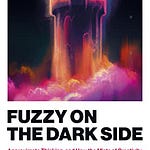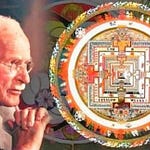Scientific research isn’t a clean march toward truth, but a deeply human endeavor, filled with uncertainty, biases, and evolving perspectives.
The researcher is not a detached observer, but an integral part of the research system itself.
What happens when the researcher's expectations shape the very phenomena being studied? What if methods aren’t neutral tools, but culturally and historically situated filters?
Tied to a broader series on The Social Fuzzy Truth of Science, and rooted in ideas from Fuzzy on the Dark Side : Approximate Thinking, this podcast looks at myths of objectivity, tensions between qualitative and quantitative worldviews, and how scientific “knowledge” often emerges through negotiation, intuition, and selective framing.
Bohr, Heisenberg, Einstein, and even research ethics boards come into focus as we ask: where does the rigor end and the storytelling begin?
This post is another thought in the “Subjective Fuzzy Science” mini series. Previous episodes in this series:
- Problem Selection in Science
Side Note & Call for Contribution:
I have started researching a few variables on the interactions of culture and creativity, particularly for people working in creative fields. I would really appreciate your contribution.
If you work in a creative field (design, arts, education, innovation, software, etc..) and have the time (~10 minutes) please fill out my survey (it should be entertaining and reflective, particularly the last part). As a token of gratitude, I will share with you the results of the research when it is completed, and free access to “The Atlas of Worldly Wisdom”.
“The Atlas of Worldly Wisdom” is a course is about The Big Picture. The Purpose and The Way. It is a jigsaw of ‘super ideas’ from different fields, integrated into the Awareness-Intent-Creativeness (AIC) Triple-Helix (the One Model to Rule Them All!). The Atlas includes a comprehensive and gradual long-term learning plan that includes readings, other tools, and missions.













Share this post